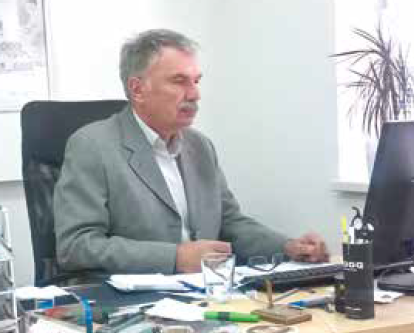Benning Power Electronics is a part of a large system that has implemented a number of complex projects relating to power systems in telecommunications, industry and railway, as well as produced tailor-made devices for specialized users. Benning Power Electrics belongs to a big system that offers a range of innovative solutions which are applied in numerous economy segments, from transport to telecommunications.

What does being a part of a large system mean for your operations in Serbia?
Benning GmbH is company offering a wide range of energy electronic products, primarily power devices that are used from telecommunications to industry and railway, as well as tailor-made devices for specialized users. Our advantage lies in the fact that we have solutions for every user which is, at the same time, also a challenge because every system that we produce is technically unique since we provide turnkey solutions that require our knowledge of all implementation phases – from installation and commissioning to maintenance and service.
Who are your key partners on the domicile and foreign market?
Our equipment is installed in key locations in Telekom Serbia, in the Electric Power Industry of Serbia (EPS), in power generating systems like hydro-electric plants Bajina Bašta, Uvac, Zvornik, TENT Obrenovac, Đerdap I, Đerdap II, and in power substations of EMS. Owing to the cooperation with our partners which are large system integrators like Siemens Serbia, Energomontaža, ELNOS BL, MINS Elektro, Termoinženjering and others, we have delivered equipment to the Stanari thermo power plant in the Republic of Srpska, the Brezna power substation, and Krnovo, the first wind farm in Montenegro.
How would you rate the overall business environment in Serbia, and how can it be improved?
We have been operating in Serbia as a part of the Benning Company for almost 5 years. When we founded the company here, we had to estimate the total turnover for VAT purposes, and pay the VAT regardless of not having any projects in the pipeline, or generating any income at that point. Of course, this had an encumbering effect on our overall results. Also, the process of investing and implementing projects lasts for several years, and it often happens that 3 or 4 years go by from the time we send an offer to project implementation. We have to wait for payment a few months, which is not a problem when the dinar is stable, but when it is not, a portion of our profit is lost because of the currency exchange fluctuations. The state provides employment incentives only for „big“ investments. I see no reason why the same criteria could not be applied to smaller investments too because, in that case, with the government’s support, we would gladly hire more people.
What do you think of the quality of the workforce in Serbia?
There is quality workforce in our branch, but it is limited in number. What I mean is that, due to a small volume of available work, the number of quality employees is limited and is hardly growing especially when we consider that energy sector is not as appealing as computer programming and software engineering.